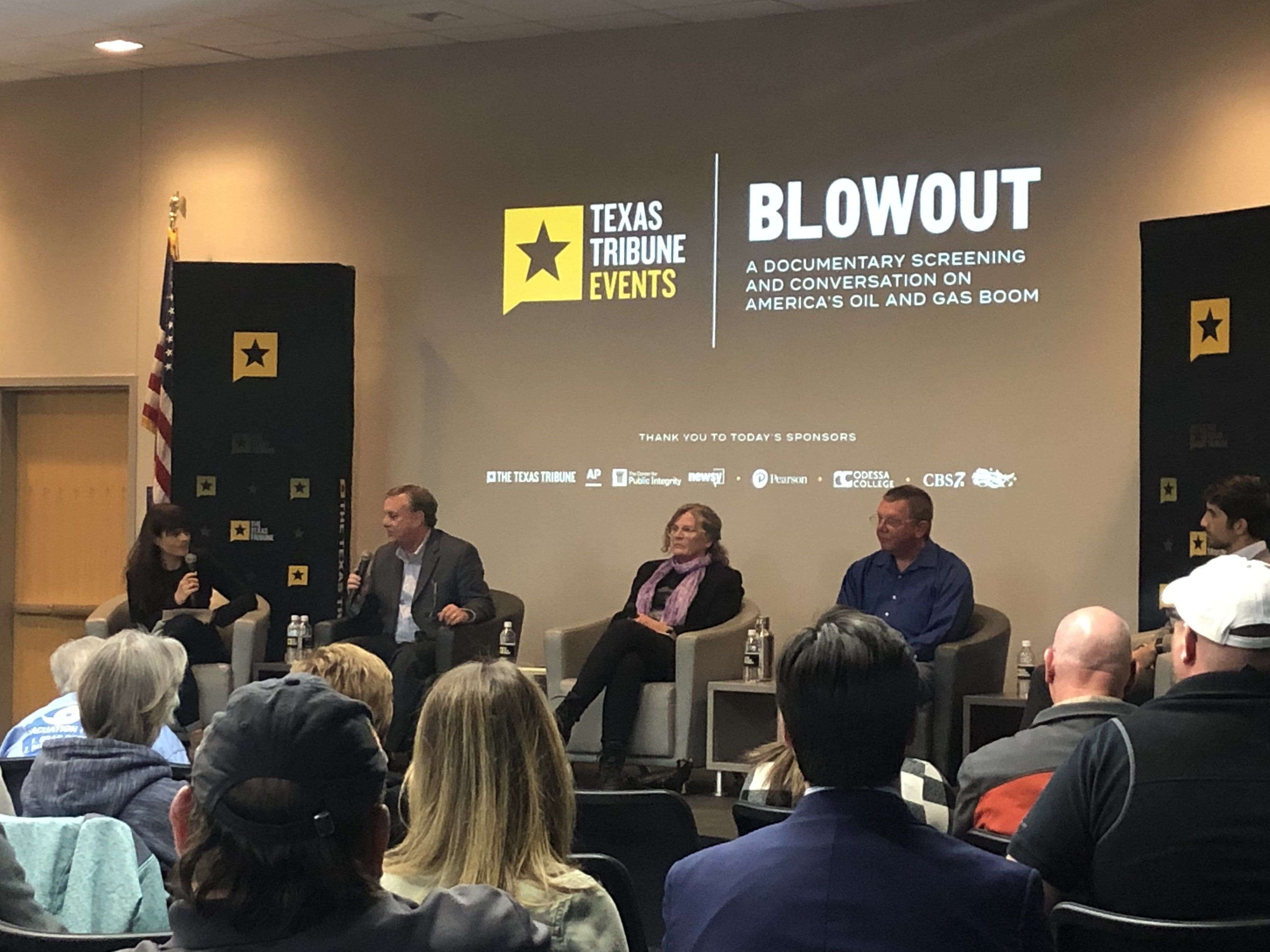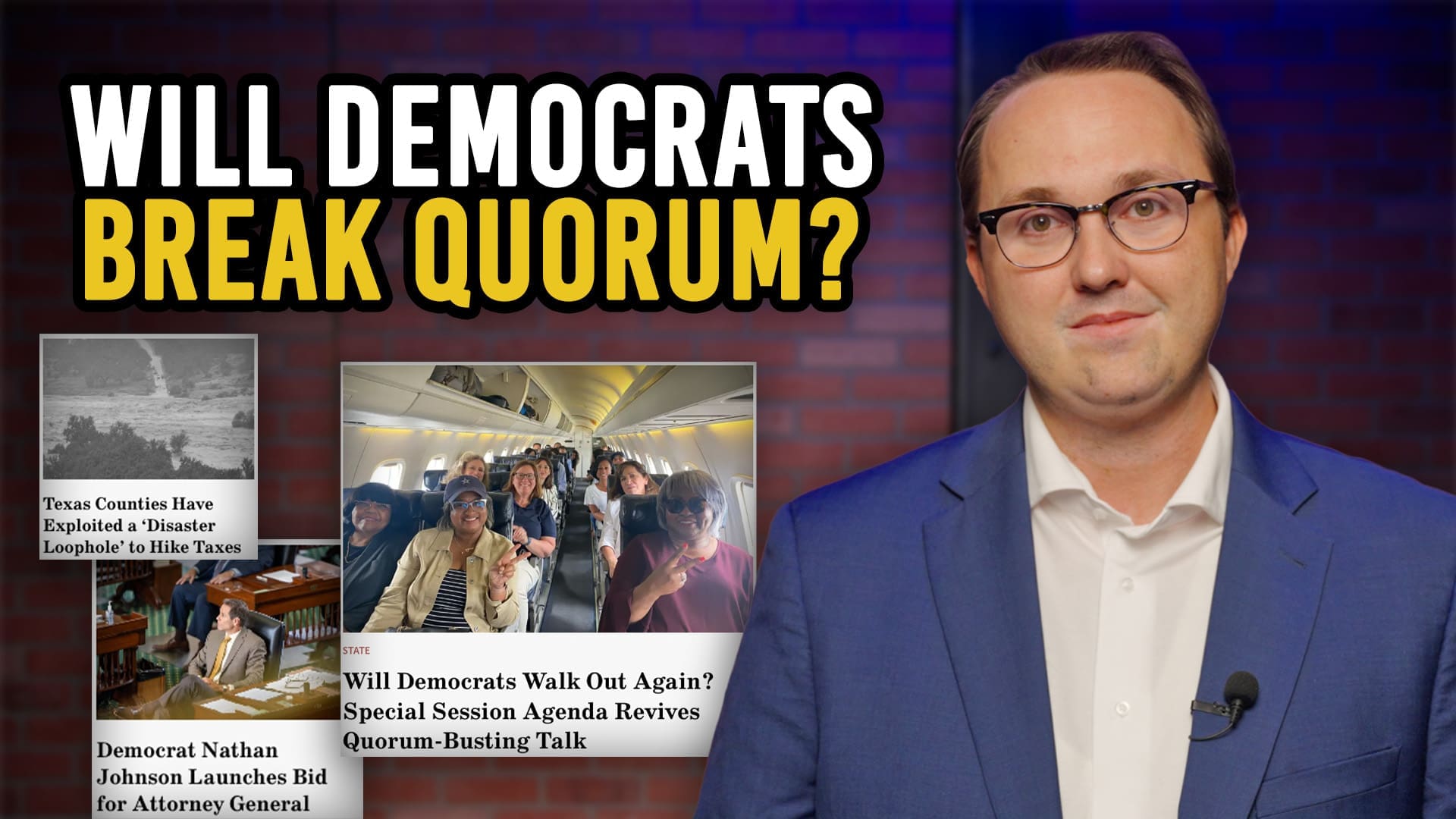Wednesday night, Permian Basin residents were the first to get a 30-minute sneak peek at a documentary titled “Blowout,” which describes the current oil and gas surge as “great for business,” but an event that’s “polluting the air, overwhelming communities, and threatening the planet.”
Sponsors of the film include The Texas Tribune, the Associated Press, Newsy, and the Center for Public Integrity, while Odessa College (who hosted the screening at its Saulsbury Campus Center), the Odessa American, Pearson, and CBS 7 were co-sponsors of the event.
Wednesday’s 30-minute portion of the film featured interviews with an engineer for Fasken Oil and Ranch, Midland Mayor Jerry Morales, Railroad Commission Chairman Christi Craddick, a Colorado family, and numerous environmental activists, including Earthwork’s senior organizer Sharon Wilson.
The film underplayed the global economy’s current reliance on fossil fuels and how access to low-cost energy has lifted billions out of abject poverty. While the documentary touched briefly on the positive economic impacts of the oil and gas boom, most of the film drew dire conclusions about the negative health and environmental impacts of the industry.
“They’re just poking holes everywhere at a very frenzied pace,” Wilson stated in the film. “We’re sacrificing peoples’ health so that the oil and gas industry can ship overseas and make a profit.”
Wilson also participated in a panel following the screening that included Permian Basin Petroleum Association President Ben Shepperd, Big Bend Conservation Alliance volunteer Coyne Gibson, and Inform Environmental Chief Technical Officer Zacariah Hildenbrand. The Texas Tribune’s energy and environment reporter, Kiah Collier, moderated the panel.
Lasting about an hour, the panel and Q&A session with the audience afterward displayed a range of sentiments about the oil and gas industry.
“Nobody can watch this trailer, I must say at this point, without thinking that the message here is oil and gas activity causes cancer, the oil and gas industry folks don’t care, the regulators are crooked, and by the way, we’re just exporting this for the fun of it because we want to make more money,” Shepperd stated. He explained that he hopes the producers would allow more input from the oil and gas industry in their follow-up and include aspects of it that paint a full and balanced picture.
One example given was the film’s interview with a former cancer patient who believed a drilling site near her home caused her to develop leukemia. Shepperd stated, however, the film did not mention the $100 million donation made by an oil and gas executive to fund the cancer research hospital that treated her. The film also did not explore whether the patient’s cancer was in fact caused by proximity to a drilling site but rather suggested it was a settled fact.
Hildebrand is involved in an ongoing research initiative in Texas that studies the effects of oil and gas activity on groundwater and air quality. He stated that the negative outcomes related to pollution cited in the film were not evidence of systemic threats, but rather rare instances.
Wilson, on the other hand, disagreed, stating, “I’ve never seen anything like what I’ve seen in the Permian Basin … it is systemic. I can pull up to almost any well any time of day or night and find emissions … egregious emissions.”
The documentary will be also be screened this week in Austin and at the Environmental Film Festival in Washington D.C.




